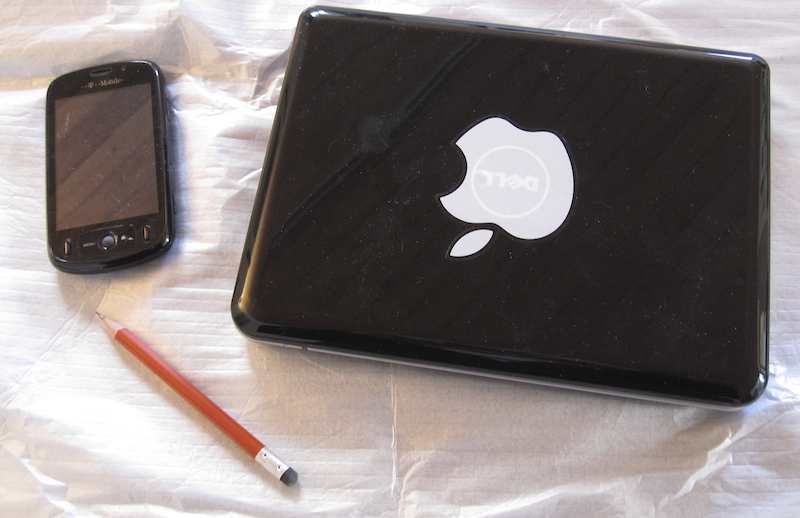Meet my new mobile office. Because I move around a lot, I’ve been using a (supposedly) 3G dongle from the 3 network, which is the only device I’ve used in years which makes me long for the good ol’days of 300 baud acoustic couplers. The other day it occurred to me that my cheapo T-mobile Android Pulse phone might make a good modem, and — lo! — thanks to PDAnet, it does. It’s a very elegant solution which doesn’t require any root hacking on the phone. Just download the App from the Android market and install it. Download the client from here and install on your Mac (and, in my case, also on my Dell Hackintosh). There are clients for BlackBerry, Palm, iPhone and Windows Mobile too. Hook up the phone via the USB cable, launch the App on both machines, click ‘Connect’ and away you go. The interesting thing for me is how quick and efficient it is compared to the 3 dongle. (Memo to self: cancel that £10/month direct debit.)
In addition to tethered USB mode, PDAnet can also handle bluetooth connections. But only on Android 2.0. Sigh. There’s always a catch somewhere. Still…






